I tried to insert each element of the json api into my postgres table.
But I get the follwoing error:
Traceback (most recent call last):
File "c:/Users/myname/Documents/repos/docker-playground/parse_json_to_postgres.py", line 20, in <module>
cursor.execute(f"INSERT into catfacts(data) VALUES ( {cat_fact} )")
psycopg2.errors.SyntaxError: syntax error at or near "{"
LINE 1: INSERT into catfacts(data) VALUES ( {'status': {'verified':...
^
My postgres table:
CREATE TABLE cat_facts (
id serial NOT NULL PRIMARY KEY,
data jsonb NOT NULL
);
My Python code to insert the data into the table:
import requests, json, psycopg2
cat_facts_json = requests.get('https://cat-fact.herokuapp.com/facts').json
conn = psycopg2.connect(user="postgres",
password="password",
host="localhost",
port="5432",
database="postgres")
cursor = conn.cursor()
for cat_fact in cat_facts_json():
cursor.execute(f"INSERT into catfacts(data) VALUES ( \' {cat_fact} \' )")
API = https://cat-fact.herokuapp.com/facts
What I am trying to achieve:
INSERT INTO cat_facts(data) VALUES ('{"status":{"verified":true,"sentCount":1},"type":"cat","deleted":false,"_id":"58e008800aac31001185ed07","user":"58e007480aac31001185ecef","text":"Wikipedia has a recording of a cat meowing, because why not?","__v":0,"source":"user","updatedAt":"2020-08-23T20:20:01.611Z","createdAt":"2018-03-06T21:20:03.505Z","used":false}');
INSERT INTO cat_facts(data) VALUES ('{"status":{"verified":true,"sentCount":1},"type":"cat","deleted":false,"_id":"58e008630aac31001185ed01","user":"58e007480aac31001185ecef","text":"When cats grimace, they are usually \"taste-scenting.\" They have an extra organ that, with some breathing control, allows the cats to taste-sense the air.","__v":0,"source":"user","updatedAt":"2020-08-23T20:20:01.611Z","createdAt":"2018-02-07T21:20:02.903Z","used":false},{"status":{"verified":true,"sentCount":1},"type":"cat","deleted":false,"_id":"58e00a090aac31001185ed16","user":"58e007480aac31001185ecef","text":"Cats make more than 100 different sounds whereas dogs make around 10.","__v":0,"source":"user","updatedAt":"2020-08-23T20:20:01.611Z","createdAt":"2018-02-11T21:20:03.745Z","used":false}');
....
